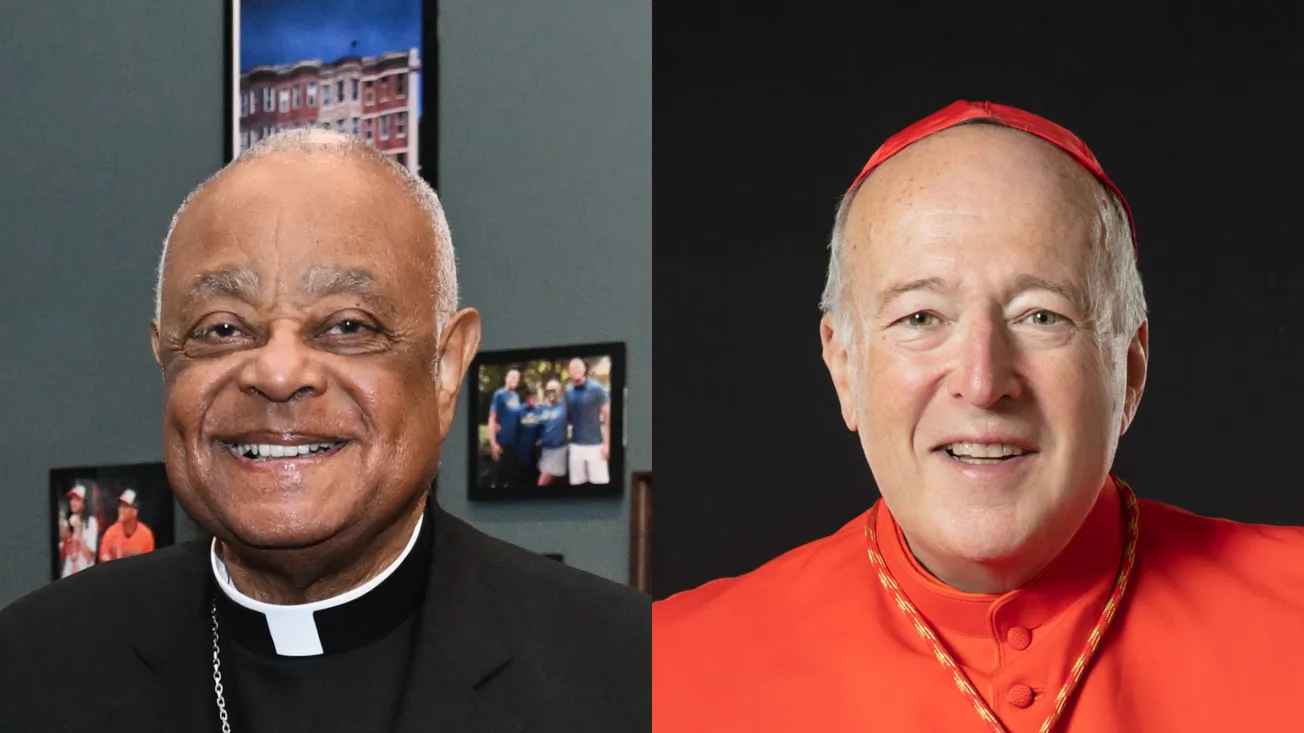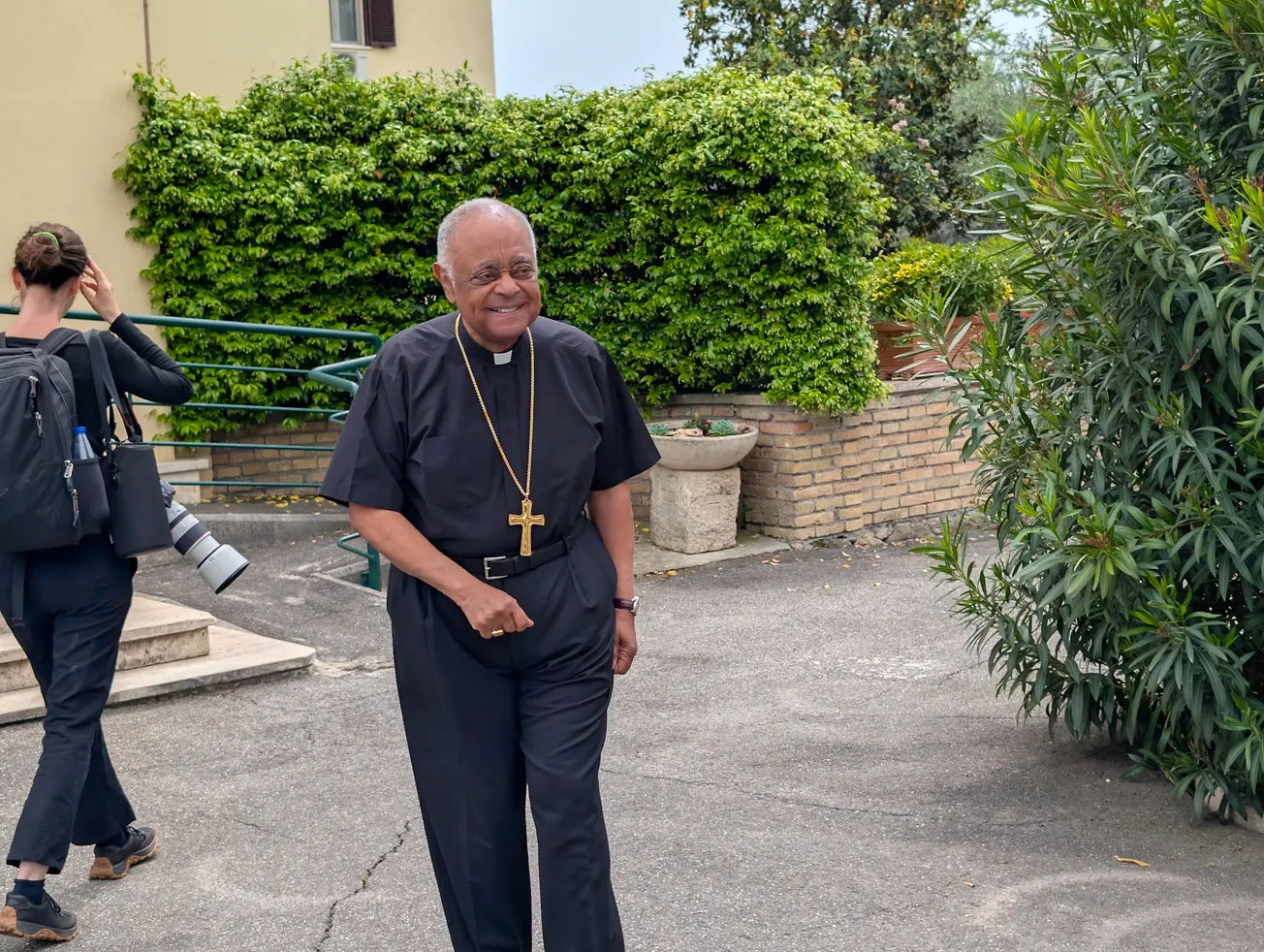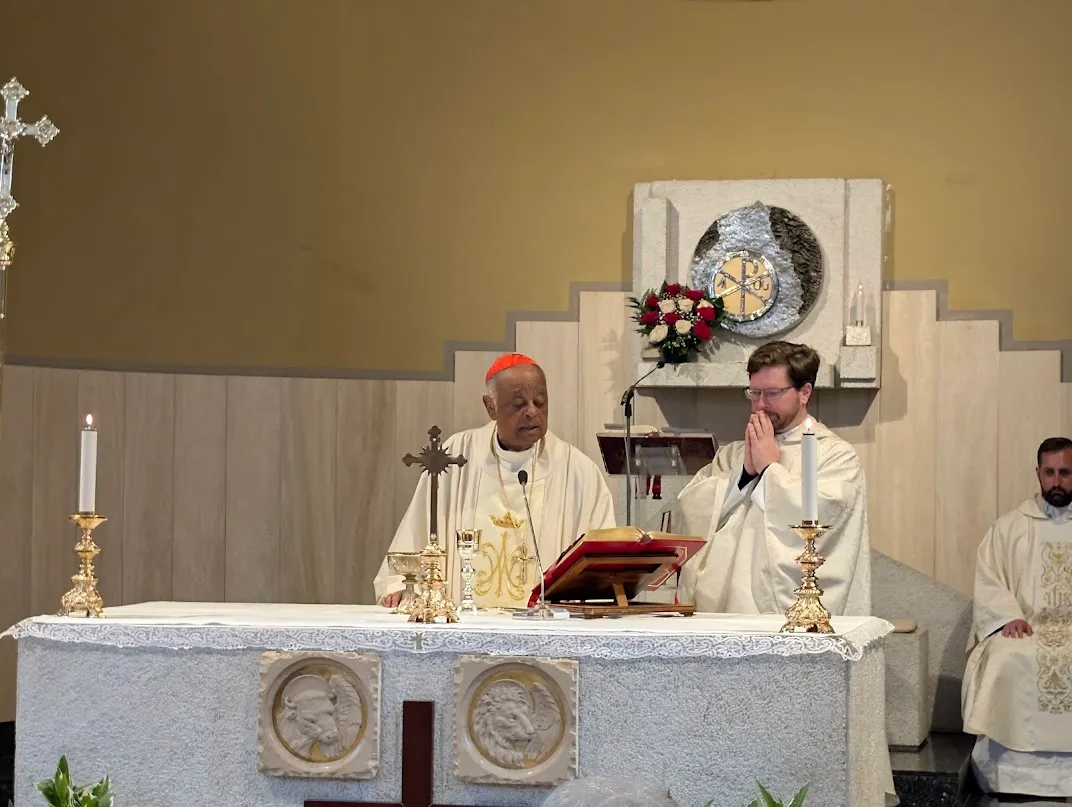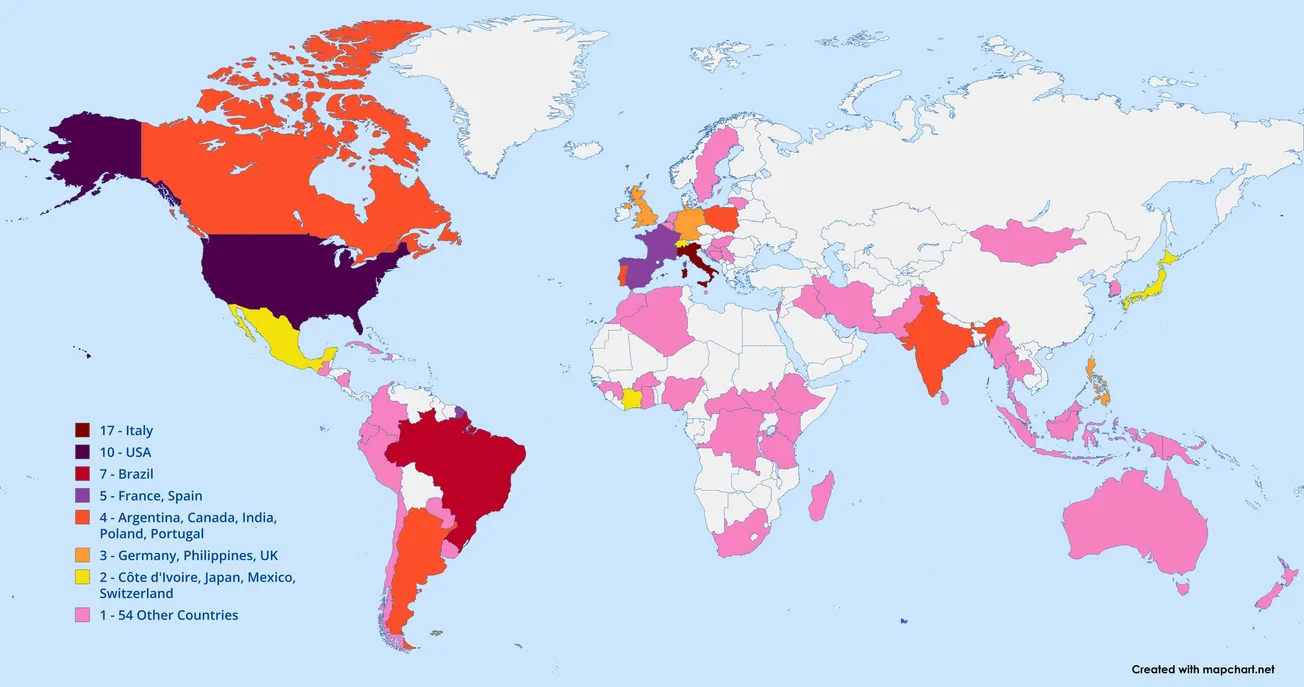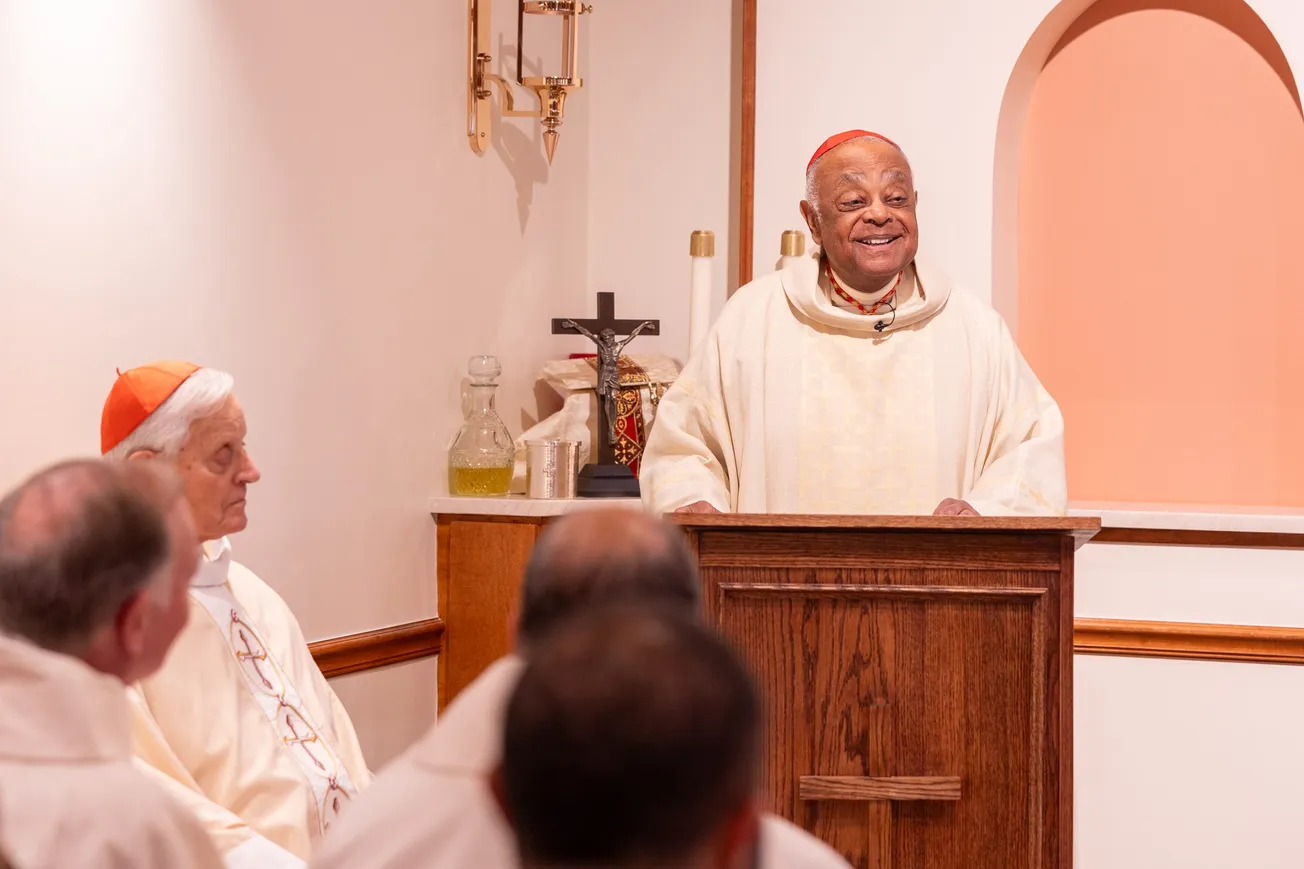Cardinal Robert W. McElroy of San Diego has been appointed Archbishop of Washington, one of the most important Catholic dioceses in the United States. He succeeds Archbishop Wilton Gregory, the Church’s first and only African-American cardinal.
Gregory, 77, submitted his age-mandated retirement request to the Vatican just over two years ago, on his 75th birthday in December 2022. He previously served as a bishop in the (Arch)dioceses of Chicago, Belleville, and Atlanta.
At a livestreamed press conference Monday in Washington, Gregory spoke of his tenure in the nation’s capital region, which began in 2019, and today’s transition.
“I received this news with many emotions; though, as I reflect upon the past nearly six years in this wonderful local Church of Washington, my heart is filled predominantly with joy and gratitude,” he said told the media at the Cathedral of St. Matthew the Apostle.
“Today, I ask for your continued prayers, even as I assure you all of mine.”
Watch the virtual news conference to introduce His Eminence, Cardinal Robert McElroy, Archbishop-Elect: https://t.co/rfydZjTVMW pic.twitter.com/m2sAR3GUML
— Catholic Archdiocese of Washington, DC (@WashArchdiocese) January 6, 2025
Gregory, one of the so-called “original 10” U.S. Black Catholic prelates, has served in the episcopate for more than 40 years, first appointed as an auxiliary bishop of Chicago in 1983 at just 35 years old. He was the youngest member of the U.S. bench upon his elevation.
Immediately prior to McElroy's appointment as Archbishop of Washington, Gregory was one of just three remaining African-American Catholic prelates still active.
During his time in Chicago, Gregory co-authored “What We Have Seen and Heard,” a pastoral letter from the aforementioned 10 African-American Catholic bishops in 1984. The letter’s 40th anniversary was celebrated last year, with Gregory participating in commemorative events that were, in retrospect, a kind of farewell tour.
While Bishop of Belleville, Gregory was elected the first Black president of the U.S. Conference of Catholic Bishops (USCCB) in 2001. Therein, he spearheaded the “Charter for the Protection of Children and Young People,” in response to the nation’s clergy sex abuse crisis.
Appointed the third African-American archbishop in history, Gregory was selected to lead the Archdiocese of Atlanta in 2004, where he remained for 15 years.
Gregory’s appointment to lead the Archdiocese of Washington sent shockwaves throughout the U.S. Church. He was the first Black prelate ever to serve as head of the capital diocese, and by virtue of his office was expected to be made a cardinal.
That occurred in November 2020, amid the COVID-19 pandemic and troubling times in D.C. Just months before, Gregory had spoken out against President Donald Trump over his controversial actions during a visit to the Saint John Paul II National Shrine—with both men making national and international headlines.

McElroy, Gregory’s successor in Washington, is expected to take a similar tack during a second Trump administration due to begin later this month. The Bishop of San Diego since 2015, McElroy—like Gregory—is considered a close ally of Pope Francis and a leading voice among U.S. bishops on social issues. Both were appointed as delegates to the Synod on Synodality, which recently held its international sessions in Rome.
A prominently pro-immigrant prelate, McElroy has served as a member of the USCCB Subcommittee on the Church in Latin America, as well as those for international affairs, ecumenism, and domestic justice. He was elected president of the California Catholic Conference in 2019.
His appointment as a cardinal in 2022 came as something of a surprise, given that bishops of San Diego typically do not receive the red hat from the Vatican. He leapfrogged the two conventional targets in California, the archbishops of Los Angeles and San Francisco, offices currently held by more conservative prelates.
As a result, McElroy may be the first American Catholic ordinary to head a new diocese after being made a cardinal.
McElroy, 70, is expected to serve for at least the better part of a decade in Washington, where he was present on Monday with Gregory to give remarks to the press.
“My first call as your bishop is to show reverence for the grace of God which is already present in your midst and in the commitment to discipleship that underlies this local Church,” he said, later referring to both spiritual and political matters pertinent to his new post.
“Forming a vision for the Archdiocese for the coming years will have to be a truly collaborative effort if it is to guide us through the challenges which we now face and will face in the future, and help us to seize the opportunities for pastoral growth that lie within our midst.”
Nate Tinner-Williams is co-founder and editor of Black Catholic Messenger.


